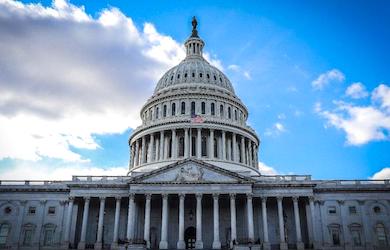This article, the second in our Media for Change series, explores the power of film to ignite environmental passion.
The environmental crisis is a pressing issue, affecting ecosystems, societies, and economies globally. As awareness rises, various media – books, films, and TV – have become significant tools to grasp and confront these challenges. Documentaries like “Blue Planet II” and “Cowspiracy” have demonstrably triggered a shift towards environmental awareness and action [1][2]. These films have personally impacted me, making me more mindful of single-use plastics and meat consumption. Highlighting that, engaging with compelling media can shape our perspectives and inspire action.
Figure 1: Cinema [3]
Furiosa: A Mad Max Saga (2024) – Currently in cinemas
The Mad Max franchise, since its 1980s debut, has epitomised post-apocalyptic fiction. The harsh Australian outback serves as a desolate setting for a future perished to environmental collapse and ecocide. In the 2015 Mad Max film, Fury Road, we learn of a lush society called “The Green Place” that ultimately succumbs to ruin [4]. The latest film in the Mad Max franchise, “Furiosa”, starring the likes of Anya Taylor-Joy and Chris Hemsworth, briefly shows a glimpse of this lost utopia – flourishing vegetation, bountiful harvests, and a sustainable society powered by wind and solar energy [5][6]. By contrasting a hint of “The Green Place” with a wasteland as the main stage, “Furiosa” provides a glimpse of a future where humanity fails to learn from its mistakes and rebuild a sustainable world.
Don’t Look Up (2021) – on Netflix
“Don’t Look Up” uses a darkly humorous lens to depict the impending disaster of a comet crashing towards Earth as a metaphor for climate change [7]. Starring a stellar cast including Jennifer Lawrence and Leonardo DiCaprio, the film critiques society’s sluggish and misguided response to environmental threats.
The film cleverly portrays the societal, political, and corporate roadblocks that hinder effective climate action, prompting viewers to consider the urgent need for collective responsibility [8]. With its star power and thought-provoking irony, “Don’t Look Up” offers an entertaining commentary on the challenges of addressing climate change in today’s world.
Wall-E (2008) – on Disney Plus
Pixar’s “Wall-E” is set in a dystopian future where Earth drowns in rubbish and junk, a consequence of unchecked consumerism and corporate greed [9][10]. The film, with Sigourney Weaver among the cast, follows Wall-E, a lone robot, and his discovery of a plant – a symbol of hope and a potential key to humanity’s return.
While presenting a bleak outlook, “Wall-E” also offers a powerful message of hope. It suggests that through responsibility and action, the environment may heal. With adorable animation and a captivating story, “Wall-E” underscores the interconnectedness of environmental degradation, consumerism, and the enduring human spirit. While remaining true to the seriousness of the topic, Pixar crafts a story that’s suitable for a younger generation to understand and connect with, thus resonating with the entire family.
Princess Mononoke (1997) – Currently on Netflix (UK)
Hayao Miyazaki’s “Princess Mononoke” is set in early modern Japan, where a fierce conflict between industrialisation and nature unfolds. Starring well known actors such as Gillian Anderson and Jada Pinkett Smith in the English dub, the story follows Ashitaka, a young prince on a quest to restore balance between humans and the natural world [11].
“Princess Mononoke” is a powerful declaration for harmony, respect, and coexistence with nature. It lays bare the devastating consequences of human actions on the environment [12]. This visually stunning and emotionally resonant film compels viewers to consider their relationship with nature and the importance of sustainable practices.
The Power of Storytelling: Shaping an Eco-Conscious Future
Film narratives, leveraging scientific data, personal experiences, or compelling visuals, have the capacity to significantly enrich environmental understanding and encourage environmental discourse. By engaging with these thought-provoking stories, audiences can foster a deeper appreciation for our planet and its complexities, ultimately boosting collective action towards environmental stewardship.
About Pager Power
Pager Power undertakes technical assessments for developers of renewable energy projects and tall buildings worldwide. For more information about what we do, please get in touch.
References
[1] Dunn ME, Mills M, Veríssimo D. “Evaluating the impact of the documentary series Blue Planet II on viewers’ plastic consumption behaviors”. Conservation Science and Practice. 2020; 2:e280. https://doi.org/10.1111/csp2.280. Accessed: 4th June 2024.
[2] Prolman N. ““Cowspiracy” Documentary Might Inspire You To Go Vegan”. Global Citizen. 2016.https://www.globalcitizen.org/en/content/cowspiracy-a-film-review-that-will-change-your-lun/. Accessed: 4th June 2024.
[3] Simon M. “photography of Cinema”. Unsplash. 2018. https://unsplash.com/photos/photography-of-cinema-atsUqIm3wxo. Accessed: 4th June 2024.
[4] Miller G. “Mad Max: Fury Road”. IMDb. 2015. https://www.imdb.com/title/tt1392190/. Accessed: 4th June 2024.
[4] Miller G. “Furiosa: A Mad Max Saga”. IMDb. 2024. https://www.imdb.com/title/tt12037194/. Accessed: 4th June 2024.
[5] Mould O. “Furiosa: A Mad Max Saga – blink and you’ll miss a solarpunk alternative to series’ usual dystopia”. The Conversation. 2024. https://theconversation.com/furiosa-a-mad-max-saga-blink-and-youll-miss-a-solarpunk-alternative-to-series-usual-dystopia-230460. Accessed: 4th June 2024.
[6] McKay A. “Don’t Look Up”. Netflix. 2021. https://www.netflix.com/title/81252357. Accessed: 4th June 2024.
[7] Buckley C. “Don’t Just Watch: Team Behind ‘Don’t Look Up’ Urges Climate Action”. The New York Times. 2022. https://www.nytimes.com/2022/01/11/climate/dont-look-up-climate.html. Accessed: 4th June 2024.
[8] Stanton A. “WALL-E”. Disney+. 2008. https://www.disneyplus.com/en-gb/movies/wall-e/5G1wpZC2Lb6I. Accessed: 4th June 2024.
[9] Treadaway A. “The Loss of Humanity through Consumerism in WALL-E”. Coastlines: Vol. 1: Iss. 6, Article 5. 2019. https://aquila.usm.edu/cgi/viewcontent.cgi?article=1101&context=coastlines. Accessed: 4th June 2024.
[10] Miyazaki H. “Princess Mononoke”. Netflix. 1997. https://www.netflix.com/title/28630857. Accessed: 4th June 2024.
[11] Chan MA. “Environmentalism and The Animated Landscape in Nausicaä of the Valley of the Wind and Princess Mononoke”. Animated Landscapes: History, Form and Function. Bloomsbury, New York, pp. 93-108. 2015. https://eprints.leedsbeckett.ac.uk/id/eprint/3312/3/EnvironmentalismAndTheAnimatedLandscapeAM-CHAN.pdf. Accessed: 4th June 2024.




